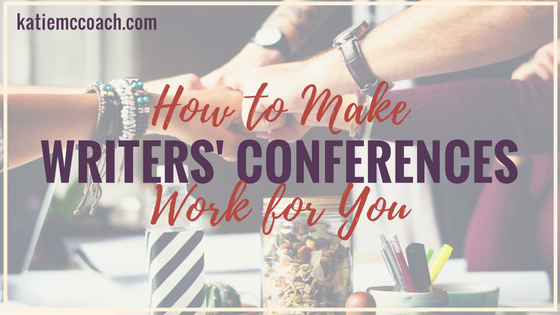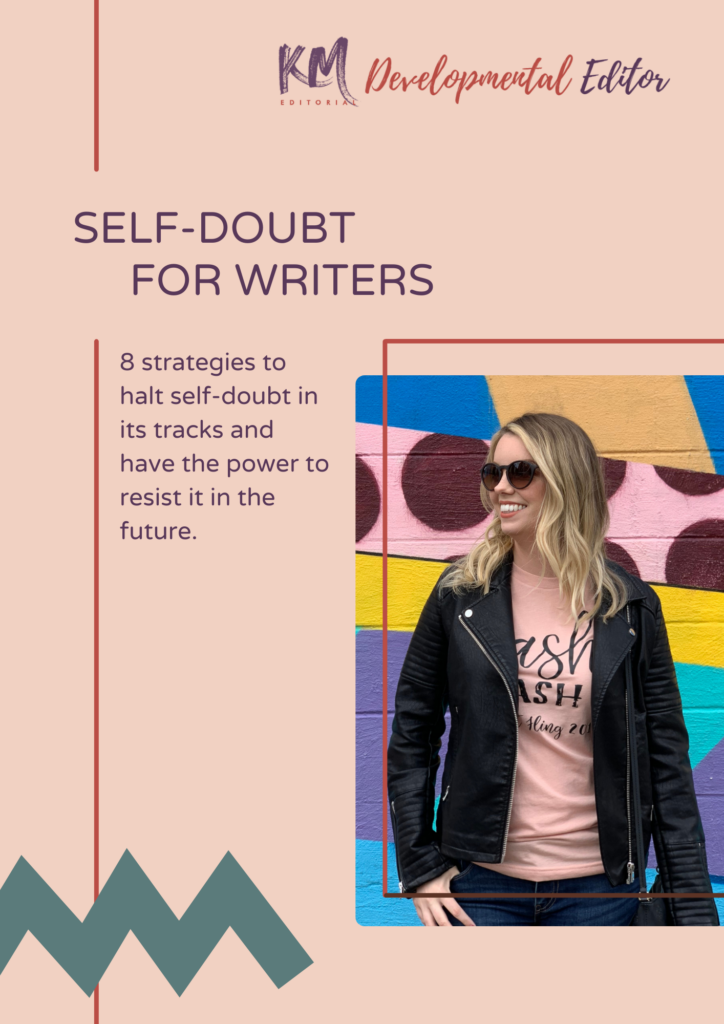Conference season is upon us! Okay, yes, it’s pretty much a year-round thing, but because my favorite conference is coming up (RWA), I’m feeling the conference vibes and want to share some thoughts with you.
There are hundreds of conferences, day-long events, workshops, and online retreats that writers can choose from. Events that include craft workshops and featured speakers. Retreats that foster writing escapes—a place to focus on your work without the daily distractions. Panels that discuss the state of the industry, what agents & editors are looking for, or what the heck is going on with book sales. Pitch sessions to get your work in front of gatekeepers. Meet and greets with publishing professionals to learn how to edit, promote, distribute, and overall self-publish your work.
It’s easy to become overwhelmed by these events. Are the conferences worth the time, travel, money? How do you know which conference is right for you? Should you go bankrupt and attend every conference under the sun? You definitely should, right? If your sci-fi writer friend recommends the SFWA Nebula conference, but you write historical romance, you should go, right? RIGHT?
When you are considering attending a conference, there are 8 things to take into consideration.
Community
- Engaging with other writers is a great benefit of attending events, even those hosted online. You get to foster connections that can last your entire writing career. I’ve been to several local chapter events for RWA, I’m a board member of another chapter (online), and I’ve been to two RWA annual conferences. This year is my third, and by now, I’ll see familiar faces, regroup with friends (that I made there!), meet new people I’ve talked to online, and say hi to people I’ve never spoken to before. Many people find lifelong friends or critique partners through these events. It’s a nice reminder that you aren’t in this alone. If building connections is your goal, then attend events that foster this, but also, volunteer! The more involved you are in helping the event get off the ground, or helping it run smoothly while there, the greater you are immersed in the community.
Knowledge
- If your goal is to learn everything you can about craft, revising, creating stronger stories, upping your conflict, and more, then focus on conferences that have more workshops than others. Look at the roster of speakers and the list of workshop topics. Listen to what others say about the conference. The first time I went to RWA, I learned so much! GMC. Black moments. Then I attended an AWP conference, and my experience was very different. There were not workshops, it was mostly panels, and I didn’t learn anything new. Some conferences may even have recordings of workshops from previous years (RWA does) and that can give you an idea of if that conference offers topics that are useful to you.
Pitching
- Ahh, one of the biggest draws to conferences. Pitching in-person is a big deal, and it gives you a chance to connect one-on-one with an agent or editor. What could help you beat the slush pile better than that? If pitching is a main goal, be sure to look at the list of industry professionals attending. If you have to sign up for a slot ahead of time, then be sure you know exactly who you plan to pitch. Do your research. Maybe the event even has a pitch/critique session with an agent. If this is your main goal, make sure the conference offers it, AND has agents who represent your genre.
Promotion
- Some conferences and events are more about connecting with readers than others. For example, Book EXPO. These events are primarily about getting your book in the hands of readers, distributors, reviewers, and bookstores. At the California Dreamin’ Conference in 2017, they hosted a luncheon where readers could sit at a table with a specific author. This was a great opportunity for authors and readers to connect on a more intimate level.
Retreat
- Is your goal to write, write, write all week/weekend? If so, look for an event or usually called “retreat” that embraces this important aspect of a writer’s life. Many conferences are go, go, go, and there’s little downtime. From workshops, to pitching, to talking, to parties, there is little time to sit in the calm and write without distraction. But, there are tons of retreat options created for this need alone. Find ones that have the right blend of writing blocks and workshops for you.
Explore
- A lot of publishing related companies will attend the conference as well, and this is a great opportunity to speak with them and learn more at a one-on-one level. You’ll have the chance to meet book distribution platforms, formatters, freelance editors, cover designers, marketers, virtual author assistants, and more. This is especially useful if you are a self-publisher or plan to be.
Investment
- Consider the location, cost of the conference/event registration, travel and lodging costs, and what people say about the conference. Is it worth the expense? Does the conference switch locations every year, so maybe if it’s too expensive this year, it may be closer to home and thus more affordable the next year? Are there awards or grants you can apply for? How many meals are included in the conference fee? If you ran a workshop or volunteered, would you receive a discount?
Awards
- Most conferences use the opportunity to highlight major, annual contests connected to their organization. These are usually prestigious awards related to that genre/field. If you’ve finalized in a contest, number one, congrats, and number two, enjoy that recognition! Wouldn’t you want to be there if you are announced as winner?
Bonus: Swag
- This is just a bonus tip, but if you love swag, pay attention to what attendees say about the swag at different conferences. I usually leave RWA with a carryon suitcase filled only with books. Books I received for free. It’s the best kept secret (oops, not anymore) of the RWA annual conference. Plus totes, pens, candy, pens, bookmarks, pens, hand sanitizer, pens, and notepads. I even have a beach towel.
In conclusion, know your goals ahead of time, be open to stepping outside of those goals if the opportunity arises, and attend the conferences that are right for YOU.
When you sign up for the KM Editorial monthly newsletter you’ll receive a free downloadable Guide to Getting Published.



 Download your free copy of these 8 tried-and-true strategies to stop self-doubt and imposter syndrome as a writer. And, build the power to resist it in the future.
Download your free copy of these 8 tried-and-true strategies to stop self-doubt and imposter syndrome as a writer. And, build the power to resist it in the future.
Trackbacks/Pingbacks